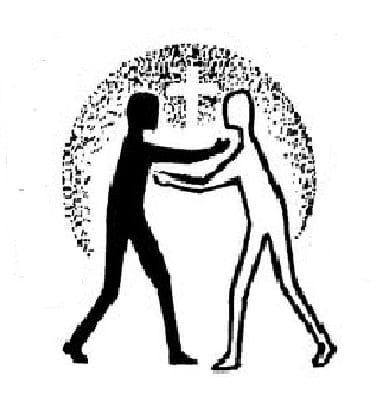
Fraternal correction
Scripture Passage (Matthew 18:15-18)
If your brother sins [against you], go and tell him his fault between you and him alone. If he listens to you, you have won over your brother. If he does not listen, take one or two others along with you, so that every fact may be established on the testimony of two or three witnesses. If he refuses to listen to them, tell the church. If he refuses to listen even to the church, then treat him as you would a Gentile or a tax collector. Amen, I say to you, whatever you bind on earth shall be bound in heaven, and whatever you loose on earth shall be loosed in heaven.
Commentary
In Matthew’s Gospel, Jesus teaches His disciples how they are to deal with a fellow disciple who sins and yet remains within the community. First, the correction should be done in private; if this doesn’t work, then correction should be done in the presence of two or three witnesses; if this fails, then the matter is to be brought before the Church. If the sinner still refuses to be corrected, then he is to be expelled from the Church. To be expelled from the Church is no small matter, because the Church’s judgment will be ratified by God in heaven; Jesus said: “Whatever you bind on earth shall be bound in heaven, and whatever you loose on earth shall be loosed in heaven” (Matthew 18:18); if the sinner does not repent and reconcile with the Church, then the excommunication remains eternally binding.
In his Letter to the Corinthians, St. Paul urges the early Christians in Corinth to maintain their inner purity by disassociating with sinners within the community; he wrote: “But I now write to you not to associate with anyone named a brother, if he is immoral, greedy, an idolater, a slanderer, a drunkard, or a robber, not even to eat with such a person.” (1Cor 5:11)
According to the Catechism: Certain particularly grave sins incur excommunication, the most severe ecclesiastical penalty, which impedes the reception of the sacraments and the exercise of certain ecclesiastical acts, and for which absolution consequently cannot be granted, according to Canon Law, except by the Pope, the bishop of the place or priests authorized by them. (CCC 1463)
What exactly is excommunication? Excommunication is a penalty imposed by the Church; it is a kind of penalty known as a “censure,” which aims to break a person’s stubbornness and make him realize his wrongdoing, so that he can repent and return to the Church.
Under the 1917 Code of Canon Law, an excommunicated person was excluded from the communion of the faithful (can. 2257 §1), pretty much in the way described by Matthew’s Gospel and St. Paul’s Letter to the Corinthians. However, this was not carried over in the 1983 Code of Canon Law; therefore, at the present time, a person who has been excommunicated does not mean that he is “kicked out” of the Church. Instead, a revision to the Code of Canon Law made in 2021 prohibits an excommunicated person from doing certain things within the Church (can. 1331); e.g., receiving the sacraments and taking an active part in church celebrations. Excommunicated persons can still come to Mass, but they are prohibited from performing ministerial duties; for example, distributing Holy Communion or reading at Mass.
It is important to remember that the Church imposes penalties like excommunication, not for the purpose of keeping sinners out of the church, but as a “medicine” to “wake up” sinners into realizing their wrongdoing and spur them to repentance and reconciliation with God and the Church. Even as Jesus, in Matthew’s Gospel, sounds pretty harsh in expelling sinners who refuse to be corrected from the Church; Jesus, in Luke’s Gospel, teaches us God’s love and mercy in the parable of the prodigal son, who after realizing his wrongdoing and repenting, was welcomed back into his father’s house (cf. Luke 15:11-32).
Questions for reflection
- What are the pros and cons of excommunication?
- Do you think that the way that excommunication is carried out today is too lenient? Why?